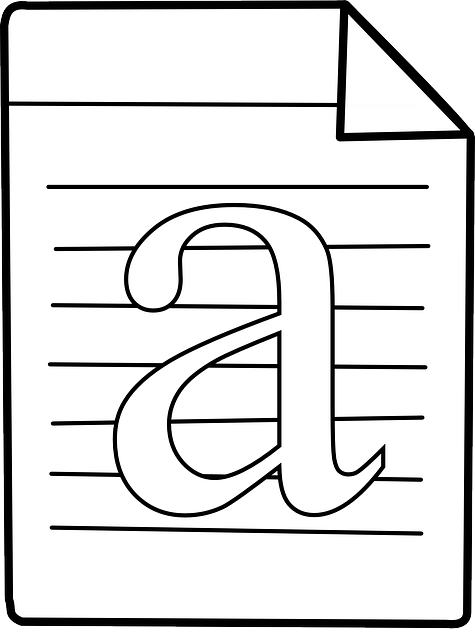In today's global marketplace, protecting UK Intellectual Property (IP) requires accurate translations of patents, trademarks, and copyrights. Professional translation services specialize in UK IP documents, ensuring legal enforceability and uniform protection worldwide. These experts bridge linguistic and technical gaps, facilitating global expansion while safeguarding UK-originated IP. Engaging experienced translators minimizes risks, ensures document authenticity, and complies with UK and international legal standards. Selecting certified translation services adhering to ITI/CEN guidelines, ISO 17100/9001 quality certifications, and RIT standards is crucial for effective IP protection and management.
“In the dynamic landscape of UK intellectual property (IP), accurate translations play a pivotal role in safeguarding innovations and creative works. This article delves into the significance of certified translations for patents, trademarks, and copyrights, essential components of IP protection. We explore how professional translation services navigate complex linguistic and legal challenges, ensuring these documents retain their integrity across borders. By understanding the types of IP documents and the critical standards they must meet, businesses can choose the right UK Intellectual Property Documents translation services to safeguard their valuable assets.”
- Understanding the Importance of Accurate Translations for UK Intellectual Property
- The Role of Professional Translation Services in IP Document Protection
- Types of Documents: Patents, Trademarks, and Copyrights
- Challenges in Translating Intellectual Property Documents
- Ensuring Quality: Standards and Certifications for Translations
- Legal Considerations for Certified Translations in the UK
- Choosing the Right Translation Provider for Your IP Needs
Understanding the Importance of Accurate Translations for UK Intellectual Property

In the competitive landscape of global business, understanding and navigating UK Intellectual Property (IP) laws is paramount for any company aiming to protect and monetize its innovative creations. Accurate translations of patents, trademarks, and copyrights are not merely optional—they are a strategic necessity. For documents to be legally enforceable and effectively managed across borders, precise language rendering is essential. This is where professional translation services come into play, offering specialized UK IP Documents translation solutions tailored to meet the unique requirements of these legal documents.
With the ever-increasing internationalization of markets, businesses must ensure that their intellectual property is protected uniformly across jurisdictions. Inaccurate translations can lead to misunderstandings, misrepresentations, and even legal complications. Professional translators with expertise in IP law bridge this gap, providing not just linguistic proficiency but also a deep grasp of the intricacies involved in translating such specialized content. This ensures that every term, concept, and nuance is conveyed faithfully from one language to another, facilitating smooth global expansion and protection for UK-originated intellectual property.
The Role of Professional Translation Services in IP Document Protection

Professional translation services play a pivotal role in safeguarding and protecting UK Intellectual Property (IP) documents, such as patents, trademarks, and copyrights. Accurate and certified translations are essential to ensuring these valuable assets are safeguarded for international use and recognition. With global markets becoming increasingly interconnected, businesses must ensure their IP is protected across borders. This is where professional translation services step in, offering specialized knowledge of both legal terminology and cultural nuances.
By engaging experienced translators with a deep understanding of intellectual property law, organizations can rest assured that their documents are handled with precision and expertise. These services guarantee the accuracy and authenticity of translations, which is crucial for legal validity and enforcement worldwide. Certified translations not only facilitate smoother international IP protection processes but also mitigate risks associated with inaccurate or poorly executed translations.
Types of Documents: Patents, Trademarks, and Copyrights

When it comes to protecting and internationalizing intellectual property, understanding the nuances of patents, trademarks, and copyrights is essential. These UK intellectual property documents require careful handling, especially when seeking to expand globally. A patent, for instance, grants exclusive rights to an invention, offering a time-limited monopoly in exchange for disclosing the invention’s details. Accurate translations are critical to ensure inventors can protect their innovations across borders.
Similarly, trademarks shield distinctive signs, symbols, or expressions from misuse by others. This includes words, logos, and slogans that represent a company’s brand identity. Professional translation services for UK intellectual property documents ensure these marks remain legally enforceable internationally. Copyright, on the other hand, protects original works of authorship, such as literary, artistic, and musical creations, providing creators with exclusive rights to reproduce, distribute, and display their work. Accurate translations are vital to safeguard these rights in foreign territories.
Challenges in Translating Intellectual Property Documents

Translating UK intellectual property (IP) documents, such as patents, trademarks, and copyrights, comes with unique challenges. These include navigating complex terminology specific to each field, understanding subtle nuances in language and cultural contexts, and ensuring precise conveyance of technical details while adhering to legal requirements. Each IP document type has its own jargon and specialized concepts that require expert knowledge to translate accurately.
For instance, a patent application may involve detailed descriptions of inventions, processes, or machines, demanding a deep understanding of scientific and technical terminology. Similarly, trademark translations must capture the essence and brand identity while adhering to legal standards for distinctive marks. Copyright translations, on the other hand, necessitate handling issues related to copyright laws across different jurisdictions, ensuring fair and accurate representation of creative works. Effective communication of these intricacies requires professionals well-versed in both language and IP law.
Ensuring Quality: Standards and Certifications for Translations

When it comes to certified translations of UK intellectual property documents, such as patents, trademarks, and copyrights, quality is paramount. Reputable translation services specialising in this field adhere to stringent standards set by organisations like the Institute of Translation & Interpreters (ITI) and the European Committee for Standardisation (CEN). These standards ensure accuracy, consistency, and cultural appropriateness in translations.
Certifications like ISO 17100 and 9001 further validate the quality management systems of these services. They guarantee that every translation undergoes rigorous reviews and meets or exceeds legal requirements. This is crucial when dealing with intellectual property, where even minor inaccuracies can have significant legal implications. Choosing a UK Intellectual Property Documents translation service with recognised certifications ensures your documents are handled by experts who understand both the language and the nuances of intellectual property law.
Legal Considerations for Certified Translations in the UK

In the UK, certified translations of intellectual property (IP) documents like patents, trademarks, and copyrights are crucial for legal protection and international recognition. When it comes to IP documentation translation services, accuracy and authenticity are paramount. The Royal Institute of Translators (RIT) sets standards for translation quality, ensuring that certified translators adhere to strict guidelines. This is especially important in the UK, where IP laws are complex and enforcement can vary across Europe.
Legal considerations include notarization and authentication to meet the requirements of UK courts and intellectual property offices. Translation services should provide official certificates that guarantee the translator’s identity and the document’s authenticity. Compliance with these procedures is essential to ensure the validity of translations in legal disputes, licensing agreements, and international IP protection.
Choosing the Right Translation Provider for Your IP Needs

When it comes to protecting and commercialising your intellectual property (IP) in the UK, accurate translations are paramount. Choosing the right translation provider for your patent, trademark, or copyright documents is a crucial step in ensuring their legal validity and market success. Look for providers that specialise in UK Intellectual Property Documents translation services, with a team of expert linguists who understand not just the language, but also the nuances of IP law.
Reputable firms offer not just word-for-word translations but also cultural adaptation, ensuring your documents resonate with local audiences. They should employ quality assurance processes, such as peer review and term base management, to maintain consistency and accuracy. Additionally, consider providers with experience in dealing with complex technical jargon related to IP, as this requires a deep understanding of both the language and the subject matter.
In today’s global marketplace, certified translations of UK intellectual property documents are essential for protection and success. Professional translation services play a vital role in ensuring accurate communication across languages, preserving the integrity of patents, trademarks, and copyrights. By understanding the challenges and legal considerations involved, businesses can make informed decisions when choosing a reliable provider to meet their specific IP needs, thereby securing their competitive edge in the international arena.



